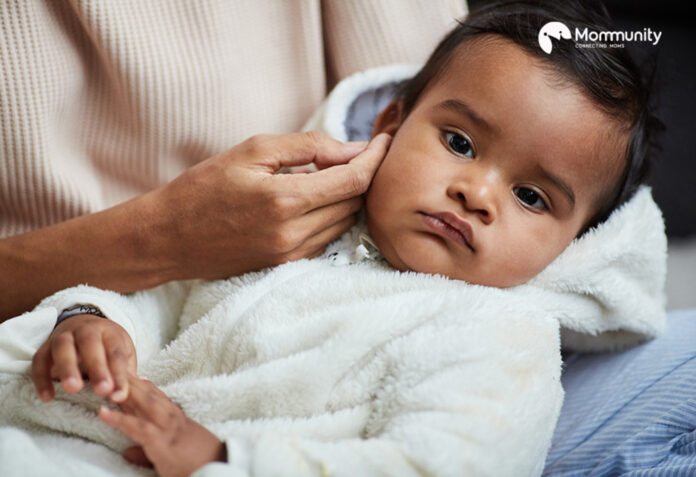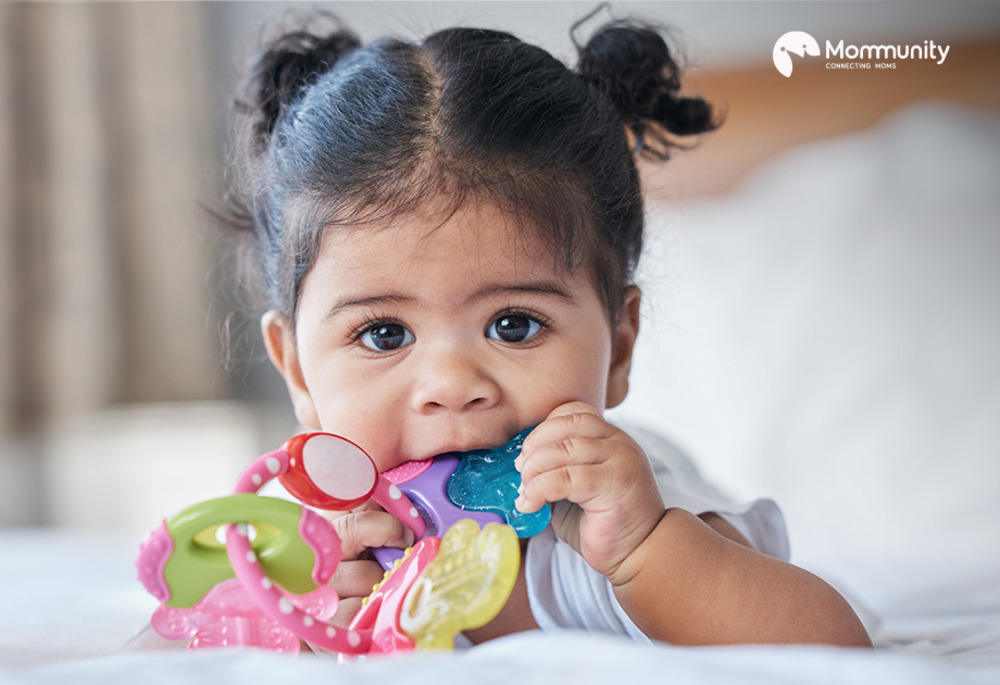As a new mom, the world shrinks to the tiny universe cradled in your arms. Every gurgle, coo, and giggle becomes a symphony, and every sniffle or whimper a cause for concern. So, when your precious little one suddenly feels warm to the touch, a thermometer confirms a Fever in babies, and their bright eyes turn listless, it’s perfectly normal to feel a surge of panic. Their tiny bodies seem so fragile, and a sudden rise in temperature can send your worry levels soaring like a runaway balloon.
But take a deep breath, mama! This isn’t the time to hyperventilate. Fever in babies, while concerning, is a very common occurrence. In fact, a fever is your baby’s body’s natural defense mechanism, a soldier bravely fighting off an invasion by pesky viruses or bacteria. Understanding what a fever means, how to manage it at home, and when to seek medical attention can empower you to navigate this situation with confidence and care.
What is a Fever in Babies?
Fever in Babies is when their rectal temperature is 100.4°F (38°C) or higher. This doesn’t necessarily mean your baby is seriously ill. In fact, fever is a natural response by the body’s immune system to fight off infection.
Understanding Different Temperatures
- Low-grade fever (100.4°F – 102°F / 38°C – 38.9°C)
This is the most common type of fever in babies and often doesn’t require immediate medical attention.
- Moderate fever (102°F – 104°F / 38.9°C – 40°C)
This may indicate a more serious infection, but it’s still important to monitor your baby closely and consult your pediatrician if symptoms worsen.
- High fever (over 104°F / 40°C)
This can be concerning, especially in babies under 3 months old. Seek immediate medical attention for a high fever.
What to Look for Besides Temperature
While a Fever in Babies is a red flag, it’s not the only indicator of your baby’s health. Here are other symptoms to watch out for:
- Fussiness or irritability
This is a common sign of discomfort in babies with a fever.
- Poor feeding
If your baby is refusing to eat or breastfeed, it could be a sign they’re not feeling well.
- Lethargy or excessive sleepiness
Your baby might seem more tired than usual with a fever.
- Vomiting or diarrhea
These could be signs of a stomach bug or another infection.
- Rash
Some illnesses that cause fever can also cause a rash on your baby’s skin.
- Seizures
Febrile seizures, caused by a rapid rise in temperature, can occur in some babies. If this happens, stay calm, call emergency services immediately, and lay your baby on a flat surface.
Keeping Your Baby Comfortable
Here are some tips to help your little one feel better while they have a fever:
- Dress them lightly
Don’t bundle them up in extra blankets.
- Offer cool fluids
Breastmilk or formula is best, but water can also help.
- Lukewarm baths
Not cold baths! Use lukewarm water to help bring down their temperature slightly.
- Use a cool mist humidifier
This can help ease congestion if your baby has a cold or flu.
- Plenty of TLC
Cuddles and comfort go a long way when your baby is feeling unwell.
When to Call the Pediatrician?
Here are some situations where it’s crucial to seek medical attention for your baby’s fever:
- Your baby is under 3 months old
- The fever is very high (over 104°F / 40°C)
- The fever lasts for more than 3 days
- Your baby seems very lethargic or is difficult to wake up.
- Your baby has a stiff neck or a bulging fontanelle (soft spot on their head).
Remember, mom, you’re not alone! Fevers are common in babies, and while they can be alarming, they’re usually not a cause for major concern.
Beyond the Basics: Teething and Fevers
You might be wondering: can teething cause a fever in babies? The answer is yes, but it’s usually a low-grade fever (less than 102°F / 38.9°C)
Empowering Yourself with Knowledge:
- Keep a record of your baby’s temperature and other symptoms. This can help your pediatrician diagnose the cause of the fever.
- Familiarize yourself with the different types of thermometers and how to use them accurately.
- Trust your instincts! You know your baby best. If you feel something’s wrong, seek medical advice.
Your baby can have a fever for many reasons. Most of the time, it’s because they are fighting off a normal infection like cold or flu. If they are over 3 months old and still playing, eating, and drinking close to the way they normally would, you probably don’t have to worry.
If your baby is under 2 months old and has a fever, they need emergency medical attention. If they are over 2 months and are having more severe symptoms, call your doctor. We hope you will understand the reasons and causes of fever in babies by this blog.




